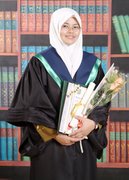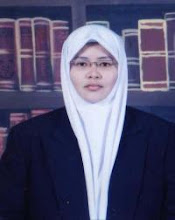
Bicara Naib Canselor Lessons in unity and volunteerism
WHEN the floods swept away homes, vehicles, furniture and even people in several states, our students were away on their semester break.
The campus was almost deserted but that did not deter the few students who were around to mobilise their friends to volunteer their services in the badly-hit areas.
With the help of the Student Affairs Department, the students planned and organised the logistics for cleaning up the devastation caused by the floods.
So there I was in the drizzling rain, just after midnight on Dec 26, to flag off three busloads of eager students and a truckload of provisions and cleaning apparatus to Kota Tinggi.
They were in Kota Tinggi for two nights and three days and cleaned up several schools.
On hearing about our students' volunteerism, the Higher Education Ministry asked Universiti Kebangsaan Malaysia to co-ordinate similar activities by the other universities to cover a wider area.
UKM was assigned to the Pagoh area. The students had by then returned from the semester break and many more volunteered to help during the weekend.
The students, in collaboration with the National Council of Women's Organisations (NCWO), also manned a flood donation centre.
On Jan 7, together with two deputy presidents of NCWO, I joined the students in Pagoh.
It was a sight to behold. Seven busloads of students from all ethnic groups, Malay, Chinese, Indian and others, were busy cleaning national schools, national-type schools, religious schools, surau, masjid, balai raya, museum Bukit Kepong and the homes of the villagers.
They sprayed, scrubbed and wiped walls, furniture, driveways, and soaped and cleaned whatever they could help salvage, from school items to home appliances, cooking utensils and crockery.
Those who needed medical attention were referred to the accompanying HUKM mobile clinic.
The students laboured hard but none complained. They understood the meaning of volunteerism and humanitarianism.
Seeing the students interacting with each other on that day made me realise that we need to be clear about our collective goals and look at new ways of forging and preserving our unity.
Evoking shared experiences and feelings is critical.
Unity is not just about listening to lectures, reading about each other's culture or understanding our history.
While the cognitive aspect is important, unity bonds at the emotional and social levels.
In Pagoh, it was about sharing the same compassion for fellow beings inneed, such as comforting the crying makcik who has lost everything in the floods.
It was having the same desire and compulsion to help the IT university student who has lost his computer and notes; feeling good and appreciated when the imam of Masjid Kundang Hulu asks them to adopt his village and, later, feeling exhausted together.
When darkness fell on Pagoh, tired bodies but invigorated spirits piled into the seven buses to return to Bangi.
Their minds will reflect on the importance of mosques to the Malays and temples to the Indians in Panchor.
They will understand that the loss of a computer is devastation to a multimedia student, regardless of whether he is Indian, Chinese or Malay.
They will understand why the Indian women appreciated being given sarees and the Malays being given telekong.
In their hearts, they will never forget this shared experience and they will never be the same again.
Pagoh has been a very unique classroom for a valuable lesson in life.
The spirit of Pagoh has to be created and recreated again and again in the student's total learning experience on the campus to achieve the desired outcomes of knowledgeable, skilled and responsible citizenry.
The students have demonstrated magnificent unity which transcends differences and bonds them in pursuit of a common aim. The university cannot do anything less to support and facilitate the learning and socialisation process.
As vice-chancellor, I am truly proud of my students for showing the way.
by Prof. Dato’ Dr. Sharifah Hapsah Syed Hasan Shahabudin
Published in New Sunday Times, January 21, 2007


No comments:
Post a Comment